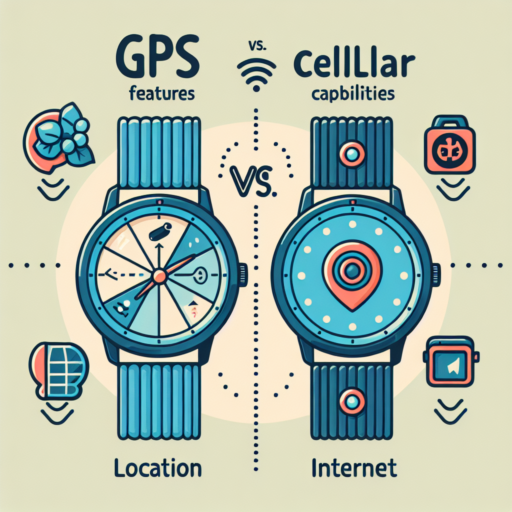What is the difference between Apple Watch GPS and cellular?
Understanding the main distinctions between the Apple Watch GPS and cellular models is essential for potential buyers looking to optimize their wearable experience. Both versions cater to various needs and lifestyles, but key differences in connectivity and functionality set them apart. Here, we delve into these variations to help you make an informed decision.
Connectivity and Independence
The most immediate difference between the Apple Watch GPS and the cellular model is how they connect to the internet and your phone. The GPS-only version requires proximity to your iPhone to access internet-based features and receive calls and messages. In contrast, the cellular model can independently connect to cellular networks, allowing for phone calls, text messages, and data usage even when your iPhone is not nearby. This capability is particularly beneficial for those who often leave their phone behind during workouts or prefer not to carry it at all times.
Data Plans and Costs
Another aspect to consider is the ongoing cost associated with the cellular model. To use the cellular features on the Apple Watch, you’ll need to subscribe to a compatible data plan through your mobile carrier, which comes at an additional monthly cost. This is in contrast to the GPS model, which incurs no extra fees beyond the initial purchase price. Potential buyers should weigh the convenience of cellular connectivity against the recurring expenditure before making a choice.
Is it worth getting a cellular Apple Watch?
Deciding to purchase a cellular version of the Apple Watch is a significant consideration for many consumers. The allure of staying connected even when your iPhone isn’t within reach is undeniably appealing. Cellular capabilities mean you can make calls, send messages, and access data without needing your phone nearby. This feature is particularly advantageous for individuals who lead an active lifestyle or who often forget their phone at home.
However, the convenience of cellular connectivity comes with an additional monthly cost to your phone bill. Most carriers offer special plans for the Apple Watch, which vary in price. This recurring expense is an important factor to weigh. It’s also worth noting that the cellular model of the Apple Watch is more expensive at the initial purchase compared to its GPS-only counterpart. Thus, evaluating your budget and how often you would utilize the cellular feature is crucial.
In terms of functionality, having a cellular Apple Watch ensures you’re never out of the loop. Whether it’s receiving important notifications, streaming music during a workout, or using emergency services while away from your phone, the benefits are tangible. For those who prioritize connectivity and convenience, the extra cost might be justifiable.
Does Apple Watch GPS work without a phone?
Many Apple Watch users often contemplate the functionality of their device’s GPS capabilities when untethered from their iPhone. The straightforward answer is yes, the Apple Watch’s GPS does indeed work without being connected to a phone. This feature empowers users to enjoy outdoor activities such as running, hiking, and biking while still capturing valuable data about their exercise.
It’s worth noting that the Apple Watch Series 2 and later models come equipped with built-in GPS. This allows these devices to provide precise distance, speed, and route information for a variety of workouts without the need for a nearby iPhone. The watch stores this data until it can sync with the paired iPhone, ensuring no important information is lost.
The independence of the Apple Watch’s GPS function enriches the user experience by offering flexibility and convenience. Whether you’re stepping out for a quick jog or embarking on an adventurous trail, your activity data is accurately tracked and stored directly on your wrist. This standalone GPS functionality signifies an important step towards making wearable technology more autonomous.
No se han encontrado productos.
Why do you need GPS and cellular on Apple Watch?
Having both GPS and cellular capabilities in an Apple Watch significantly enhances the device’s versatility and user convenience. The combination of these technologies propels the functionality of the Apple Watch beyond simple timekeeping and fitness tracking, turning it into a standalone gadget that keeps you connected and navigated without the need for your iPhone.
GPS technology in the Apple Watch is pivotal for accurate location tracking, essential for outdoor activities such as running, cycling, and hiking. It allows precise measurement of your performance metrics, such as distance, speed, and route mapping, enriching your fitness experience with detailed insights. Additionally, GPS is crucial for emergency services, enabling quicker and more accurate location pinpointing when assistance is needed.
The addition of cellular connectivity transforms your Apple Watch into an almost independent communication tool. With cellular, you can make calls, send texts, and stream music without your iPhone nearby. This is particularly useful for those who want to stay reachable but prefer not to carry their phones during physical activities or at events where carrying a phone is impractical. Cellular connectivity also ensures you receive important notifications in real-time, keeping you informed and connected.




